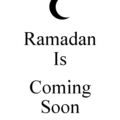Table of Contents Show
Ramadan is the ninth month of the Islamic calendar. People of Muslim faith celebrate worldwide a month of fasting to commemorate the first revelation of the Qur’an to Muhammad. The annual event is one of the five pillars of Islam. The month lasts 29-30 days on the basis of visual observations of the crescent moon. The actual word Ramadan comes from the Arabic root Ramida or ar Ramad, meaning extreme heat or drought.
The beginning and end of Ramada are determined by the lunar Islamic calendar. The moon is used to determine the start of Ramadan. The “night of power” is the holiest night of the year for those of the Muslim faith. This is the night that is believed to be the first revelation of the Qur’an. The end of Ramadan comes early next lunar month. The first day of the month is determined after another crescent of the new moon is visible.
See also: Ramadan Eid Mubarak Wishes, Images Quotes and Greeting
Ramadan will begin next week, meaning adult Muslims will be required to fast from dawn until dusk.
This year, the Islamic holy month coincides with the GCSEs and A-level exam period, with head teachers concerned that students will not be able to concentrate without eating. It also clashes with the summer solstice, the longest day of the year, meaning Ramadan will have the longest average fasting hours in its 33-year lunar-based cycle.
Does Ramadan always start on the same day?
No. Because Ramadan is a lunar month, it begins about 11 days earlier each year. During a Muslim’s life, Ramadan will fall during winter months, when the days are short, and summer months, when the days are long and the fast is more difficult – especially for those living in northern Europe.
This can pose problems for Muslims in the UK, where believers can be fasting for more than six hours longer than those in Mecca. And, in some of Europe’s northern-most towns, the sun sets for just two hours or less, leaving a fleetingly brief window for observant Muslims to break their fast. Last year, in the Swedish town of Kiruna, The Independent reports, the sun did not set until August and Muslims were advised to fast “between the times that the sun was last clearly seen to rise and fall”.
Some scholars have suggested that the Muslim diaspora use Mecca time to measure their fast, but the idea remains controversial, with many believers still opting to face fast days as long as 19 hours.
See also: Lose weight this Ramadan
Why do Muslims fast during Ramadan?
The practice is intended to help teach Muslims “self-discipline, self-restraint and generosity”, the BBC says. It’s common to have one meal (known as the suhoor) just before sunrise and another (known as the iftar) directly after sunset. Writing in The Independent, Arifa Akbar says when she was a Muslim child growing up in the UK, non-Muslims used to warn her that fasting was unhealthy. Now, she writes, “fasting seems to have been reinvented as the ancients saw it – a way of giving the body a rest, cleansing both physically and spiritually, and a way of sharpening our collective sense of self-restraint”.
Do employers have to make concessions during Ramadan?
Akbar says Ramadan is “marked far more openly in Britain” than it used to be and some employers have begun to adapt. While it is illegal for employers to have policies that particularly disadvantage religious workers, sensitivity to employees’ religious needs also makes good business sense, says Acas. This includes making provisions for flexible working and time off during religious festivals. Some companies are allowing Muslims to begin their working day later so they can catch up on sleep after waking up early to eat, or to begin their working day earlier so there is time to take a nap before the fast is broken in the evening. Some companies might be willing to consider a later start or earlier finish in exchange for a shorter lunch break.
Working Muslim, an organization helping Muslims to balance their work and faith responsibilities, recommends that employees let their colleagues and managers know that they are fasting. Instead of drinking coffee or tea, it suggests that workers take a short break every 40 to 50 minutes, splash water on their face and walk outside at lunchtime to raise oxygen levels. It also recommends planning ahead to increase the chances of taking time off from work during Ramadan, taking power naps where possible and reserving the morning hours for the most intellectually demanding work.
See also: Happy Ramadhan Mubarak
Are there any tips for fasting during Ramadan?
The NHS has a section on its website full of tips for staying healthy during Ramadan. It suggests eating at least two meals a day – the pre-dawn suhoor meal and iftar at dusk – and including complex carbohydrates that help release energy slowly. This includes foods such as wheat, oats, lentils and basmati rice.
High-fat and high-sugar foods are not recommended. The NHS suggests baked samosas, boiled dumplings, grilled meat and milk-based puddings as good alternatives to less-healthy fried food.
Dr. Razeen Mahroof, an anesthetist from Oxford, says: “Ramadan isn’t always thought of as being an opportunity to lose weight because the spiritual aspect is emphasized more generally than the health aspect. However, it’s a great chance to get the physical benefits as well.” Nevertheless, Mahroof says a balanced diet is needed, with the right proportion of carbs, fat, and protein, in order to see any benefits.
Last year, Google also released a web portal that included timetables for sunset and sunrise, as well as videos, maps for local restaurants and useful Ramadan apps.
When does it end?
The month of fasting culminates with the festival of Eid ul-Fitr, which takes place either 29 or 30 days after the beginning of the month. The date is determined by the first confirmed sighting of the new moon and there is often controversy about when it starts, with different countries observing it on different days.
The festivities begin with early morning prayers and breakfast, followed by a day of feasting with friends and family. Many Muslims don their best clothes to celebrate eating their first daylight meal in a month and give thanks to Allah for giving them strength and self-control. Gifts are often exchanged and homes are decorated to mark one of the most important days in the Muslim calendar. But it is also a time of reflection, forgiveness, and altruism. “We should remember that Eid is really a time to remember Allah and to feel the joy that comes to us once we meet obligations toward Him,” says Mission Islam. “If you participate in the fasting, the celebration becomes even more meaningful!”
What are the rules in Muslim countries during Ramadan?
In many Muslim countries, visitors are expected to abide by the restrictions of Ramadan, at least in public, meaning no eating, drinking, chewing gum or smoking during the day. The UK Foreign Office says non-Muslims should show respect to those who are fasting and pay attention so as not to offend Islamic values. It also warns that in some countries “if you demonstrate culturally insensitive behavior that offends, you could be arrested”. Loud music and dancing are considered disrespectful during Ramadan and some restaurants will close or operate amended opening hours. Travelers are advised to stock up on food in their hotel room, unless they want to rise early for a big predawn breakfast and stay up late to break the fast. The Foreign Office even warns that driving “may be more erratic than usual, particularly during the later afternoon and early evening”, and tells travelers to be patient and show tolerance during this time.
What’s Vimto got to do with it?
Somewhat surprisingly, the annual fasting month seems to have a positive impact on the sales of Vimto.
For decades, Ramadan has coincided with a major spike in sales of the quintessentially British drink, with more than half of overall sales taking place during the holy month.
In the Middle East, 35 million bottles are sold each year, with the region now home to the world’s most enthusiastic guzzlers outside the UK, The Guardian reports.
Saudi Arabia is the biggest non-domestic market for Nichols, Vimto’s Warrington-based manufacturer, followed by Kuwait and the United Arab Emirates.
The company’s John Nichols has previously said there are parts of the Middle East where the drink “is better known than parts of Britain”.
The Vimto sold in the Gulf is likely to provide a much-needed boost as it is sweeter than the version you’ll find in Britain, the Daily Telegraph reports.
Blackburn newsagent Suleman Khonat told the BBC that when fasting takes place over 19 hours, a drink is needed that energizes quickly.
“I think Vimto does go down well”, he added.
Check also: Avoid losing weight in Ramadan.
All adult Muslims fast throughout the month, except those who are sick, the elderly, pregnant, diabetic, breastfeeding or traveling. Fasting occurs from dawn to sunset as they abstain from food, liquids, smoking and sexual activities. Food and drinks are consumed before dawn and after sunset. The rewards for fasting during Ramadan believe to multiply during this month. Fasting is said to redirect the heart away from things happening around them and the world, it is supposed to purify the soul by freeing it of impurities that can hinder it. The act of fasting is also a lesson to practice self-discipline and self-control and sacrifice and to feel empathy for the less fortunate.










